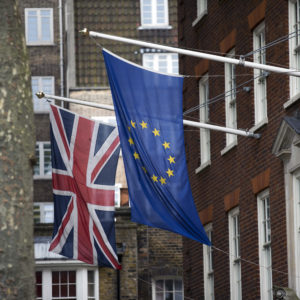In the end, it wasn’t close. People had been expecting a clear win for the Remain side in the popular vote on whether Britain should continue its membership of the European Union. Yet, over a million more Britons voted to Leave than to Remain. That clear victory, however, is just the beginning of a realignment of Britain’s — and the world’s — political landscape.
The initial shockwaves are now being felt in British politics. Prime Minister David Cameron announced he will step down. The leader of the opposition Labour Party, Jeremy Corbyn, is facing a motion of no confidence as it appears the party’s core voters have rejected its multicultural policies. Scottish First Minister Nicola Sturgeon, whose country voted strongly for the Remain side, has already reopened the question of another referendum on the country’s membership in the United Kingdom. Democracy has consequences.
Britain’s political disruptions will not affect the timetable for British withdrawal, the terms of which will take at least two years to be hashed out. Yet, it is what happens in Europe that is the more interesting question.
Euroskepticism is on the rise all over Europe. There have already been calls in the Netherlands, Italy and even France for similar referendums. The unelected technocrats in Brussels will be worried, if not shaking in their boots, over the possibility of a wave of popular rejection of their rule by regulation.
So it is entirely possible that Brussels will try to be as punitive as possible in the British exit negotiations, in an effort to dissuade other nations from following suit. If that is the case, global trade will suffer. German captains of industry have already warned they do not want to lose access to Britain’s market of 60 million people. Britain is highly unlikely to erect trade barriers with Europe from its side, so the ball is in Europe’s court, as its leaders decide whether they really want to risk economic catastrophe to maintain a political project.
As for Britain, it’s got options. The countries of the Commonwealth of Nations stand ready to benefit. Canadians, Australians and New Zealanders all can look forward to easier travel and work in the U.K. African and Asian nations can look to the U.K. as a market for its agricultural products, once it is free of the Common Agricultural Policy; the net result could be a significant fall in the price of food for Britons. Britain’s fishing industry will revive, managed in a sustainable fashion that is likely to delight environmentalists and fishermen alike.
As for Britain’s special relationship with America, President Obama raised eyebrows when he appealed for a Remain vote and appeared to threaten the U.K. with pushing it to “the back of the queue” for a future trade deal. In fact, polls show his intervention may have moved the needle in favor of Leave. And when Britons voted for Leave, the president simply walked back his pseudo-threat. “The people of the United Kingdom have spoken, and we respect their decision,” Obama said. “The United Kingdom and the European Union will remain indispensable partners of the U.S.” So much for “back of the queue.”
And while the U.S.-EU Trans-Atlantic Trade and Investment Partnership trade agreement looks dead in the water, a bilateral trade deal with the U.K. would be much easier to negotiate and could probably be done quickly. The next president should make it a priority.
Freeing the U.K. economy from burdensome EU regulations was a big part of the Leave campaign’s message. If British lawmakers follow through, the U.K. could set an example for the world, demonstrating the wealth-creating, welfare-enhancing capability of competitive market discipline, rather than the cold hand of regulation. That’s a lesson of which U.S. policymakers could use a refresher.
So there is still much to decide. And while the reaction of the world’s politicians might be like that of legendary Democratic operative Dick Tuck — “The people have spoken, the bastards” — they should consider the opportunity Britain’s beautiful exercise in democracy has provided. If the EU is conciliatory and America and the Commonwealth receptive, Britain’s vote could be seen as the start of a new age of free, global commerce.

